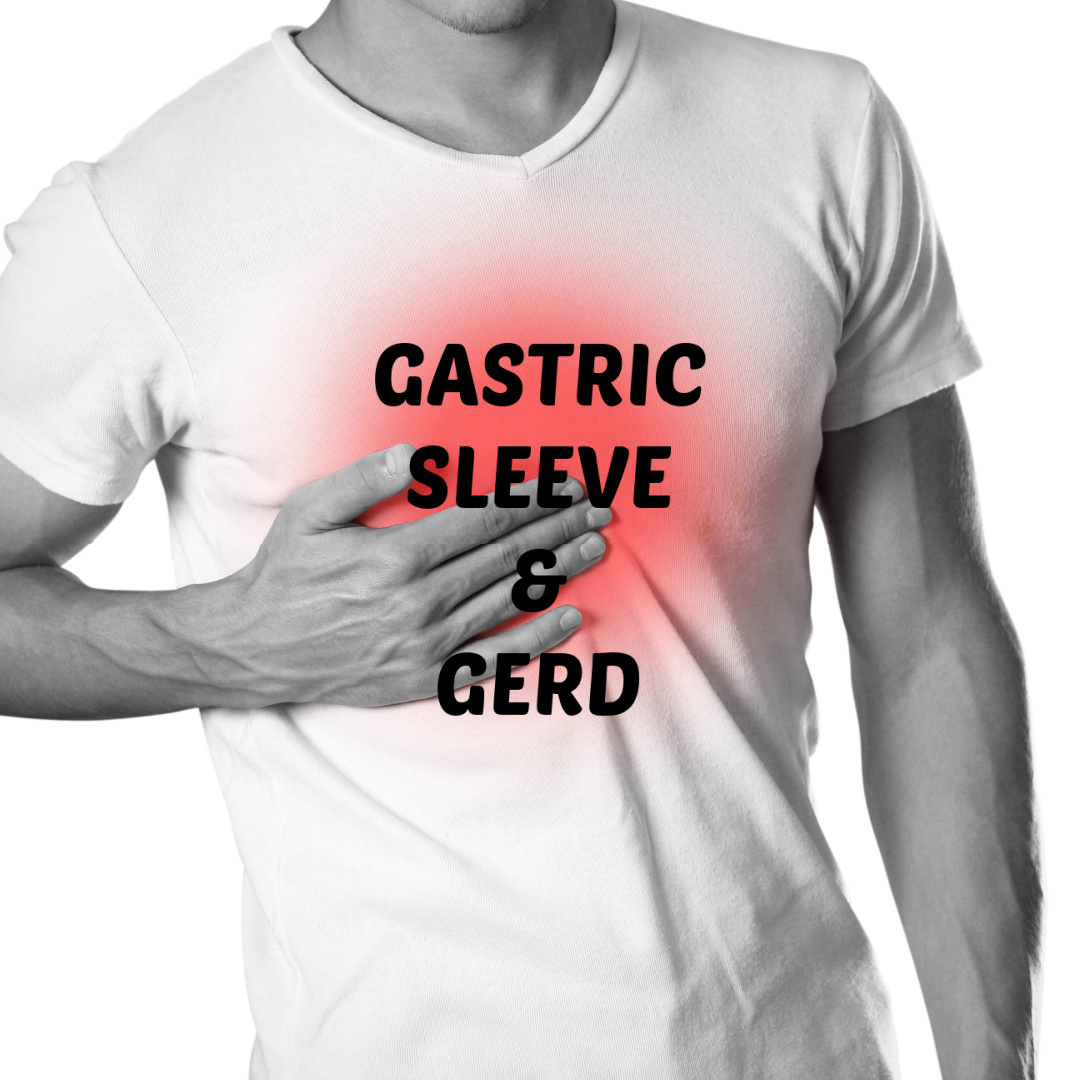Gastric sleeve surgery, also known as sleeve gastrectomy, is a weight loss procedure that involves removing a large portion of the stomach and leaving a smaller, tubular-shaped stomach, or "sleeve." While some patients may see improvement in their gastroesophageal reflux disease (GERD) once they achieve significant weight loss, most patients with GERD experience their symptoms worsening after gastric sleeve surgery. The impact of gastric sleeve and GERD symptoms is individual and depends on various factors, including the patient's anatomy, weight loss progress, and other health factors.
Weight loss in general can help reduce the severity of GERD symptoms, as excess weight can put pressure on the stomach and lower esophageal sphincter (LES), which can contribute to acid reflux. In the same respect, the smaller stomach of the gastric sleeve creates a high pressure environment and sometimes is a matter of "can the patients stand the worsening symptoms" until they're able to lose enough weight to get relief. It is generally recommended that a patient with a chronic reflux situation, and not just a situational triggered reflux, have the Roux-en-Y Gastric Bypass (RNY GB) instead of the Gastric Sleeve.
If you have GERD and are considering gastric sleeve surgery, it's crucial to discuss your symptoms and concerns with your doctor or surgeon. They can help you determine the best course of action for your specific situation and may recommend alternative treatments or surgeries, such as gastric bypass, which has been shown to be more effective in reducing GERD symptoms in most patients.
**If you or anyone you know is interested in having Gastric Sleeve or Gastric Bypass surgery, please visit www.beliteweight.com or contact us directly at (800) 215-6497 for more information.
- Braghetto, I., & Korn, O. (2019). Gastroesophageal reflux disease and morbid obesity: To sleeve or not to sleeve? World Journal of Gastroenterology, 25(14), 1660-1671. Melissas, J., & Koukouraki, S. (2015). Sleeve gastrectomy and gastroesophageal reflux. Surgery for Obesity and Related Diseases, 11(3), 526-528. https://doi.org/10.1016/j.soard.2015.02.005





